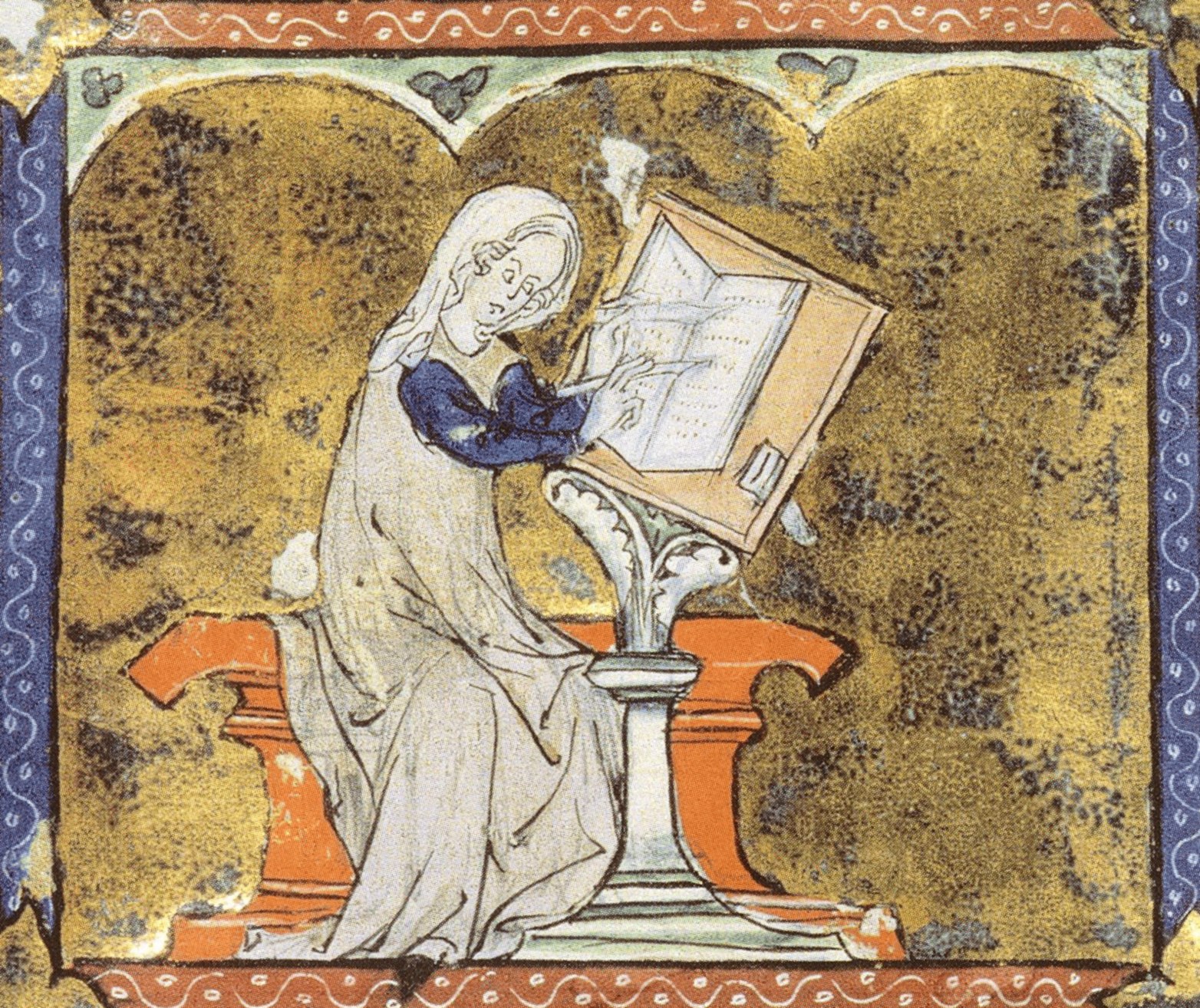Works
Chevrefoil
Marie de FranceMilun
Marie de FranceFamous Marie de France Quotes
D'euls deus fu il tut autresi
Cume del chevrefoil esteit
Ki a la codre se perneit:
Quant il s'i est laciez e pris
Ensemble poënt bien durer;
Mes ki puis les volt deservrer,
Li codres muert hastivement
E li chevrefoil ensement.
"Bele amie, si est de nus:
Ne vus sanz mei, ne mei sanz vus!"
"Chevrefoil", line 74; p. 110.
Lais
Se l'uns des amans est loiax,
E li autre est jalox è faus,
Si est amors entr'ex fausée,
Ne puet avoir lunge durée.
Amors n'a soing de compagnun,
Boin amors n'est se de Dex nun,
De cors en cors, de cuer en cuer,
Autrement n'est prex à nul fuer.
Tulles qui parla d'amistié,
Dist assés bien en son ditié,
Que vent amis, ce veut l'amie
Dunt est boine la compaignie,
S'ele le veut è il l'otreit.
Dunt la druerie est à dreit,
Puisque li uns l'autre desdit,
N'i a d'amors fors c'un despit;
Assés puet-um amors trover,
Mais sens estuet al' bien garder,
Douçour è francise è mesure.
"Graelent", line 85; pp. 149-50.
Misattributed
“Love is not honourable, unless it is based on equality.”
Amur n'est pruz se n'est egals.
"Equitan", line 137; p. 58.
Lais
“Out of five hundred who speak glibly of love, not one can spell the first letter of his name.”
Tel cinc cent parolent d'amur,
N'en sevent pas le pior tur,
Ne que est loiax druerie.
"Graelent", line 77; p. 149.
Misattributed
Ki divers cunte veut traitier,
Diversement deit comencier
E parler si rainablement
K'il seit pleisibles a la gent.
"Milun", line 1; p. 97.
Lais
Mes ki ne mustre s'enferté
A peine en peot aver santé:
Amur est plaie dedenz cors,
E si ne piert nïent defors.
Ceo est un mal que lunges tient,
Pur ceo que de nature vient.
"Guigemar", line 481; p. 49.
Lais
Si est del riche orguillus:
Ja del povre n'avra merci
Pur sa pleinte ne pur sun cri;
Mes se cil s'en peüst vengier,
Dunc le verreit l'um suzpleier.
Fables, no. 10, "The Fox and the Eagle", line 18; cited from Mary Lou Martin (trans.) The Fables of Marie de France (Birmingham, Alabama: Summa, 1984) pp. 54-6. Translation from the same source, p. 55.
